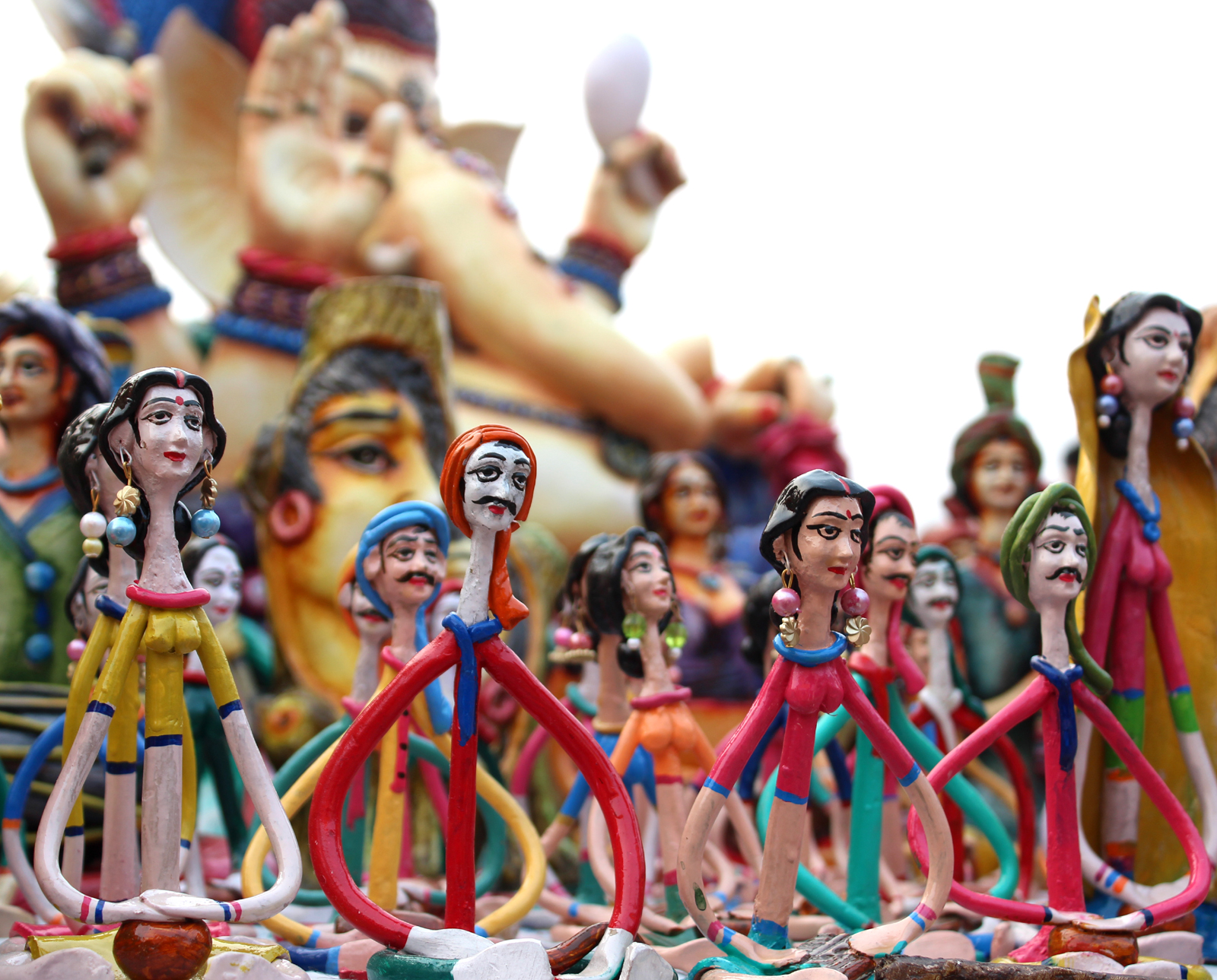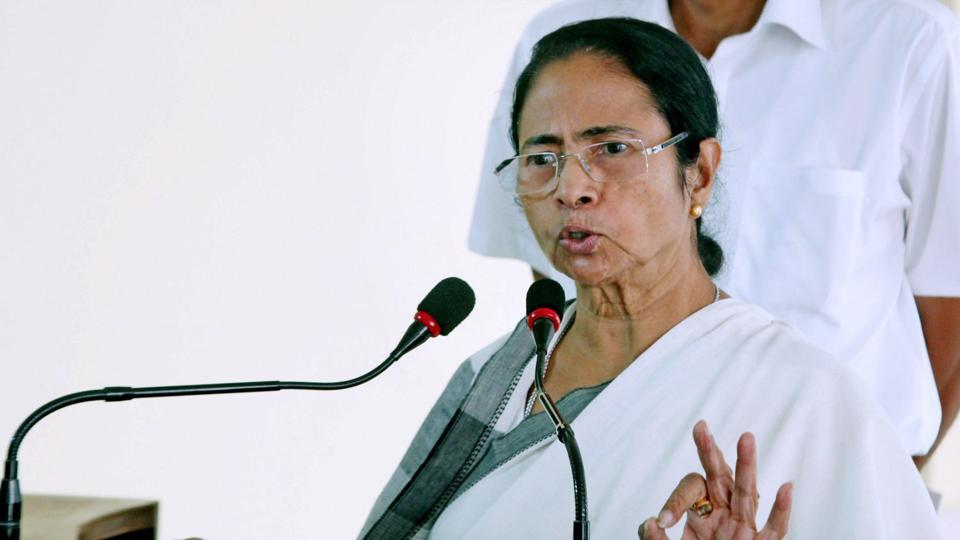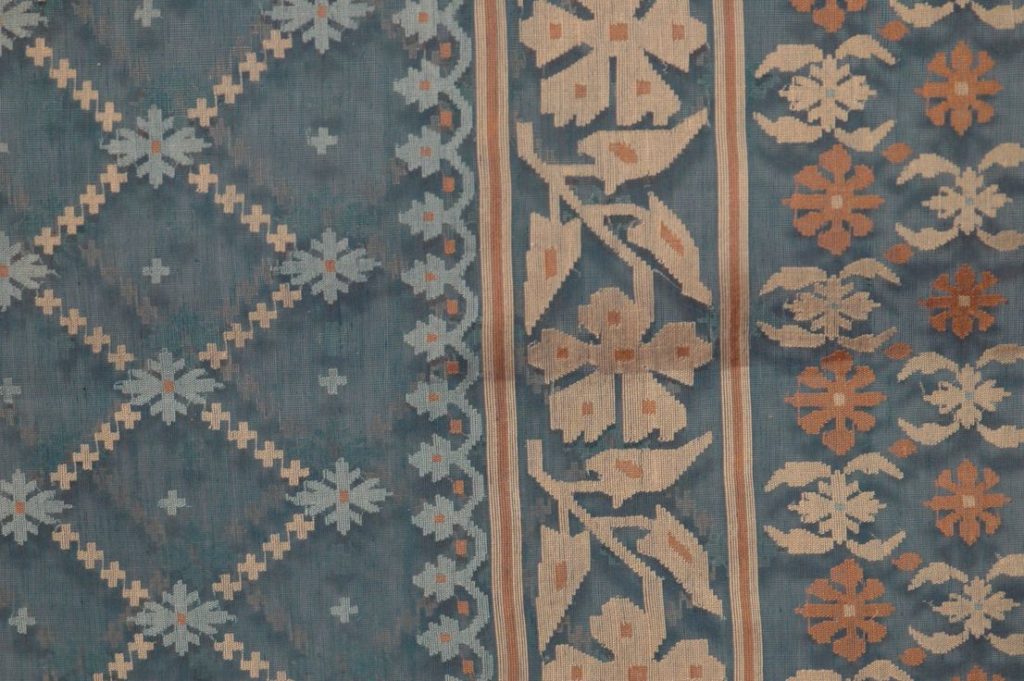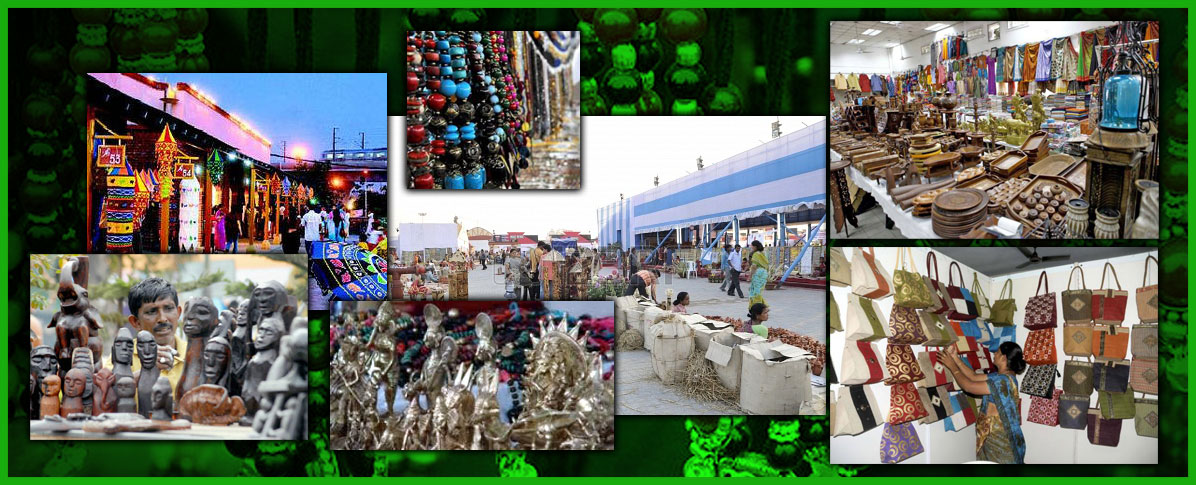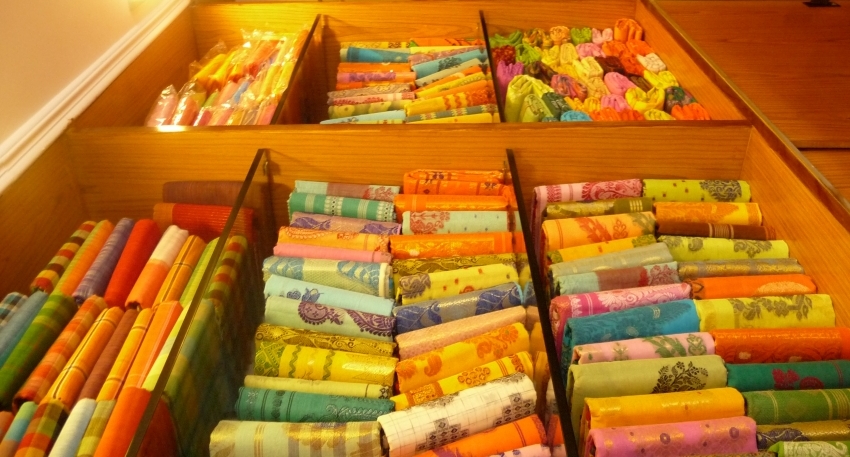Baluchari and jamdani are two of the most beautiful examples of sarees from Bengal. The State Government has been making a lot of efforts to make them more popular. As a result, the lot of the handloom weavers who make these is also improving.
Depending on the quality and types of saree, the earning of weavers has increased from 200 to 250 per day to Rs 350 to 500 per day.
Last April, Tantuja had opened an exclusive showroom for baluchari products on Park Street, Kolkata – not just sarees, but readymade garments, kurtas, belts, ladies’ bags and home décor items too.
The huge success of that has now encouraged Tantuja to open another exclusive outlet – this time for jamdani products, on Lenin Sarani.
It is going to be opened to the public in early 2018. To make the jamdani sarees more affordable, products covering a wide range of prices would be available – from Rs 2,000 to Rs 1 lakh.
Tantuja’s exclusive baluchari showroom has seen unprecedented success. From sales worth Rs 10 to 12 lakh per year, covering all the outlets, this one outlet, during the first six months from April 2017, has sold goods worth Rs 52.17 lakh.
তাঁতশিল্পের প্রসারে এবার জামদানির নয়া বিপণন
বাংলার তাঁতশিল্পের বাজারকে আরও ছড়িয়ে দিতে এবার জামদানি শাড়িতে নজর দিচ্ছে পশ্চিমবঙ্গ সরকার। নবাবি আমলের মুঘল দরবারি চিত্রকলার সঙ্গে বাংলার নকশি কাঁথায় মন্দির টেরাকোটার বুননে তৈরী বালুচরির চাহিদা বরাবরই ছিল। বালুচরির বিক্রী বাড়াতে আট মাস আগে ‘এক্সক্লুসিভ’ বিপণন কেন্দ্র গড়েছে রাজ্য সরকারের নিয়ন্ত্রণাধীন ‘তন্তুজ’। একই ধাঁচে বাংলার বস্ত্রশিল্পের ওপর এক অতুলনীয় সৃষ্টি জামদানির বাজারকে চাঙ্গা করে তুলতে শহরের বুকে আরও একটি নতুন এক্সক্লুসিভ বিপণন কেন্দ্র গড়ে তুলছে তারা।
লেনিন সরণীতে এই শোরুমটি তৈরী হচ্ছে। টেন্ডার ডেকে কাজ শুরু হয়ে গেছে। এখানে থাকবে নানা ধরনের জামদানি শাড়ি। দুই আড়াই হাজার থেকে শুরু করে একলাখি জামদানিও পাওয়া যাবে এখানে।
পার্ক স্ট্রীটে তন্তুজের বালুচরি শাড়ির ‘এক্সক্লুসিভ’ বিপণন কেন্দ্রটি চালু হয়েছে গত এপ্রিল মাসে। সংস্থার সূত্র থেকে জানা গেছে, আগে সংস্থার বিভিন্ন শোরুম থেকে বালুচরি বিক্রী করে বার্ষিক আয় হত বড়জোর ১০ থেকে ১২ লক্ষ টাকা। নতুন বিপণন কেন্দ্রটির দৌলতে তা বেড়েছে পাঁচগুণেরও বেশী। এপ্রিল থেকে অক্টোবর মাত্র ছয় মাসে সেখান থেকে বালুচরি বিক্রী হয়েছে ৫২ লক্ষ ১৭ হাজার টাকার।
বালুচরি, স্বর্ণচরি ও জামদানি বাংলার হস্তশিল্পের অন্যতম নিদর্শন। তাই এদের জনপ্রিয়তা বাড়াতেই এরম উদ্যোগ নেওয়া হচ্ছে। বালুচরির এক্সক্লুসিভ শোরুমটি থেকে বিপুল লাভের পরেই এই নতুন বিপণনটি খোলার সিদ্ধান্ত নেওয়া হয়েছে। আগামী বছরের শুরুতেই এই কেন্দ্রটি উদ্বোধন করা হবে।
তন্তুজের এই উদ্যোগে প্রধানত উপকৃত হচ্ছেন বাংলার তাঁতশিল্পীরা। তাদের দৈনিক মজুরীও অনেক বেড়েছে। শাড়ির ধরন অনুযায়ী তাঁতিরা প্রতিদিন ৩৫০ থেকে ৫০০ টাকার মতো মজুরি পাচ্ছেন। আগে এই মজুরি ছিল ২০০ থেকে ২৫০ টাকার মধ্যে।
এখন আরও একটি এক্সক্লুসিভ বিপণী খোলার পর বাংলার তাঁতশিল্প যেমন অন্য মাত্রা পাবে, তেমনই তাঁতিদের জীবনযাত্রার মান আরও উন্নত হবে।

